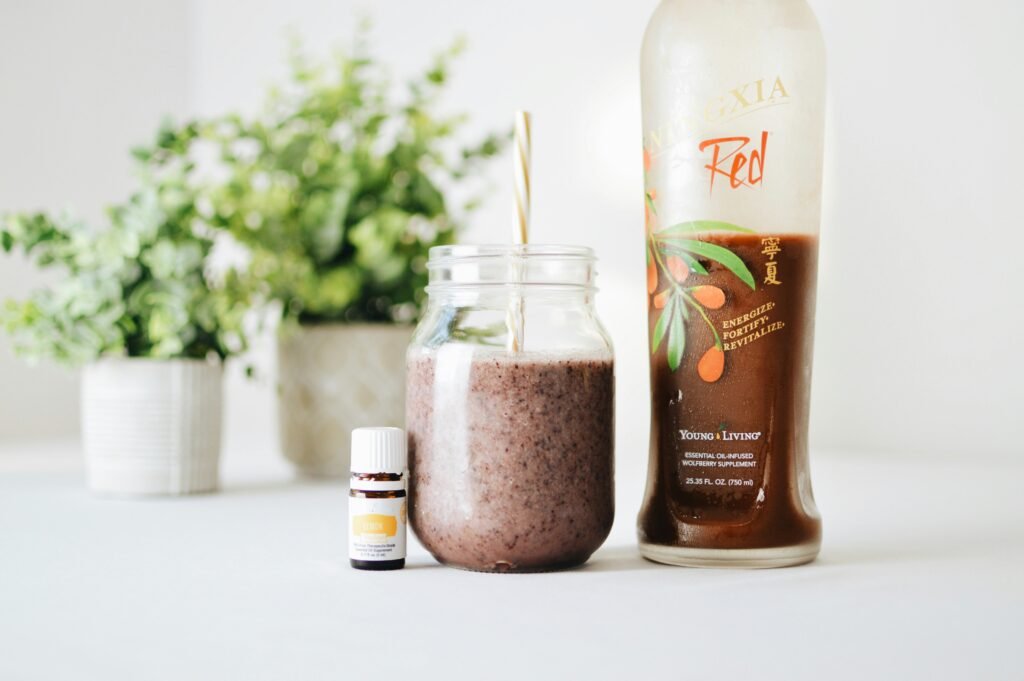Are you tired of relying on caffeine to keep you energized throughout the day? If so, you’re not alone. Many people search for natural ways to boost their energy levels without the jitters and crash that often accompany caffeine consumption. In this article, we will explore some effective strategies to help you increase your energy levels without reaching for that cup of coffee. Discover a range of tips and tricks that are not only friendly to your body but also sustainable in the long run. Say goodbye to caffeine dependence and hello to a more natural and balanced source of energy.
How Can I Boost My Energy Levels Without Caffeine?
Are you tired of relying on caffeine to get through the day? Do you want to find natural ways to boost your energy levels and improve your overall well-being? Look no further! In this article, we will explore ten effective strategies that can help you increase your energy without resorting to caffeine. So, grab a cup of herbal tea or a glass of water, and let’s get started!
1. Exercise Regularly
1.1 Cardiovascular exercise
One of the best ways to boost your energy levels is by engaging in regular cardiovascular exercise. This type of exercise, which includes activities such as running, swimming, and cycling, helps improve blood circulation and oxygen flow throughout your body. Aim for at least 30 minutes of moderate-intensity cardio exercises most days of the week to reap the full benefits.
1.2 Strength training
While cardiovascular exercise is essential, don’t neglect the importance of strength training. Incorporating strength training exercises into your routine can help build muscle mass, increase metabolism, and enhance your overall energy levels. Consider using free weights, resistance bands, or bodyweight exercises to strengthen and tone your muscles.
1.3 Yoga or Pilates
In addition to cardio and strength training, practicing yoga or Pilates can be a great way to boost your energy levels. These mind-body exercises focus on flexibility, strength, and relaxation. Yoga and Pilates can help reduce stress and tension in your body, allowing you to feel more energized and refreshed. Try incorporating a yoga or Pilates session into your weekly routine to experience the benefits.

2. Get Sufficient Sleep
2.1 Establish a sleep routine
Adequate sleep is crucial for maintaining optimal energy levels throughout the day. Establishing a consistent sleep routine can help regulate your body’s internal clock and promote better sleep quality. Try going to bed and waking up at the same time every day, even on weekends. This consistency will help your body recognize when it’s time to wind down and when it’s time to wake up, ensuring you feel well-rested and energized.
2.2 Create a sleep-friendly environment
Create a sleep-friendly environment in your bedroom to optimize your sleep quality. Make sure your bedroom is dark, quiet, and at a comfortable temperature. Invest in a comfortable mattress, pillows, and bedding that suit your preferences. Consider removing electronic devices from your bedroom or using devices that promote sleep, such as white noise machines or essential oil diffusers.
2.3 Avoid stimulating activities before bedtime
Engaging in stimulating activities before bedtime can interfere with your sleep quality. Avoid consuming caffeine or alcohol close to bedtime, as they can disrupt your sleep cycle. Additionally, limit your exposure to blue light-emitting devices, such as smartphones, tablets, and TVs, as they can suppress the production of the sleep hormone, melatonin. Instead, choose relaxing activities like reading a book, taking a warm bath, or practicing meditation to prepare your mind and body for sleep.
3. Stay Hydrated
3.1 Drink enough water
Dehydration can significantly impact your energy levels, so it’s important to stay hydrated throughout the day. Make it a habit to drink enough water, aiming for at least eight glasses or 64 ounces per day. Proper hydration helps maintain bodily functions, supports digestion, and regulates body temperature, all of which can contribute to sustained energy levels.
3.2 Avoid excessive alcohol and sugary drinks
While staying hydrated is important, it’s equally crucial to avoid excessive alcohol and sugary drinks. Alcohol can disrupt your sleep patterns and leave you feeling tired and groggy the next day. Sugary drinks, such as soda or energy drinks, may provide a temporary energy boost but can lead to crashes and increased fatigue later on. Opt for water, herbal tea, or natural fruit-infused beverages instead.
3.3 Consume electrolyte-rich beverages
When it comes to hydration, electrolytes play a vital role in maintaining your energy levels. Electrolytes, such as potassium, sodium, and magnesium, help regulate fluid balance in your body and support muscle function. Consider consuming electrolyte-rich beverages like coconut water or sports drinks after intense workouts or in hot weather to replenish lost electrolytes and keep your energy levels up.

4. Eat a Balanced Diet
4.1 Include whole grains
A well-balanced diet is essential for sustained energy levels throughout the day. Start by including whole grains in your meals, such as brown rice, quinoa, and whole wheat bread. Whole grains are rich in fiber, which helps regulate blood sugar levels and provide a steady release of energy. Incorporating whole grains into your diet can help prevent energy crashes and promote overall well-being.
4.2 Consume lean proteins
Protein is essential for repairing and building tissues in your body, including muscles. Including lean protein sources in your meals, such as chicken, fish, tofu, or legumes, can help provide a steady source of energy. Protein-rich foods also help you feel fuller for longer, reducing the likelihood of energy dips from hunger.
4.3 Eat fruits and vegetables
Fruits and vegetables are packed with essential vitamins, minerals, and antioxidants that support overall health and energy levels. Aim to incorporate a variety of colorful fruits and vegetables into your daily diet. These natural foods provide essential nutrients that can help combat fatigue and improve your overall well-being.
4.4 Limit processed foods and added sugars
While it’s important to focus on nutrient-dense foods, it’s equally crucial to limit processed foods and added sugars. Processed foods are often high in refined carbohydrates and unhealthy fats, which can lead to energy crashes and feelings of fatigue. Similarly, added sugars can provide a temporary energy boost but are quickly followed by a “sugar crash.” Opt for whole, unprocessed foods as much as possible to maintain stable energy levels throughout the day.
5. Manage Stress
5.1 Practice relaxation techniques
Stress can drain your energy and leave you feeling mentally and physically exhausted. Therefore, it’s crucial to manage stress effectively. Practice relaxation techniques such as deep breathing, meditation, or progressive muscle relaxation to help reduce stress levels and promote a sense of calmness. These techniques can help you recharge and manage stress more effectively, leading to increased energy and well-being.
5.2 Engage in hobbies and activities you enjoy
Engaging in hobbies and activities you enjoy can be a great way to reduce stress and boost your energy levels. Whether it’s painting, playing a musical instrument, gardening, or dancing, find activities that bring you joy and make time for them regularly. Engaging in activities you love can provide a much-needed mental break, enhance your mood, and improve your overall energy and happiness.
5.3 Seek social support
Human connections play a significant role in our overall well-being and can contribute to increased energy levels. Seek social support by spending time with friends, family, or joining community groups or clubs that align with your interests. Engaging in social interactions can help reduce stress, boost your mood, and increase your energy levels.
5.4 Prioritize self-care
In the midst of busy lifestyles, it’s essential to prioritize self-care to maintain optimal energy levels. Make time for activities that rejuvenate and recharge you, such as taking a relaxing bath, practicing mindfulness, or getting a massage. Prioritizing self-care allows you to refuel mentally and physically, resulting in increased energy and overall well-being.

6. Take Regular Breaks
6.1 Avoid prolonged sitting or inactivity
Sitting for long periods can lead to decreased energy levels and increased fatigue. Make an effort to avoid prolonged sitting by getting up and moving around regularly. Take short breaks every hour to stretch, walk, or perform simple exercises to get your blood flowing and increase overall energy levels.
6.2 Incorporate short exercise breaks
Incorporating short exercise breaks throughout your day can help boost your energy and productivity. Take a few minutes to perform simple exercises like jumping jacks, squats, or push-ups. These exercises increase blood circulation, release endorphins, and invigorate your body, leaving you feeling more energized and focused.
6.3 Practice mindful breathing during breaks
During your breaks, take a moment to practice mindful breathing. Close your eyes, take deep breaths, and focus on your breath as it enters and leaves your body. Deep breathing helps relax your mind, reduce stress, and increase oxygen flow to your brain, leading to improved clarity, concentration, and energy levels.
7. Get Natural Sunlight
7.1 Spend time outdoors
Spending time outdoors and getting natural sunlight can have a significant impact on your energy levels. Exposure to natural sunlight helps regulate your body’s production of serotonin, a hormone that contributes to boosting mood and energy. Take breaks outside during the day, go for a walk, or enjoy your coffee or lunch in an outdoor setting to maximize your exposure to sunlight.
7.2 Open curtains and blinds
If you spend most of your time indoors, make an effort to open curtains and blinds to let natural light in. Even small amounts of natural light can have a positive impact on your mood and energy levels. Letting in natural light also helps regulate your body’s circadian rhythm, which plays a crucial role in sleep-wake cycles and overall energy.
7.3 Consider light therapy
If you live in an area with limited sunlight or have difficulty getting adequate natural light exposure, consider light therapy. Light therapy involves using specialized lamps that mimic natural sunlight. This therapy can help regulate your circadian rhythm, boost mood, and improve energy levels. Consult with a healthcare professional to determine the best type of light therapy for your needs.
8. Stay Socially Active
8.1 Engage in social interactions
Engaging in social interactions is essential for maintaining optimal energy levels. Connection with others helps reduce feelings of loneliness, boosts mood, and provides a sense of belonging. Make an effort to initiate conversations, meet up with friends, or spend time with loved ones regularly. Building and maintaining strong social relationships can have a positive impact on your overall energy and well-being.
8.2 Join clubs or community groups
Joining clubs or community groups that align with your interests is an excellent way to stay socially active and increase your energy levels. These groups provide opportunities to meet new people, learn new skills, and engage in activities you enjoy. Whether it’s a sports team, book club, or volunteer organization, being part of a community can provide social interaction and a sense of purpose, both of which contribute to higher energy levels.
8.3 Plan outings with friends or family
Make plans to go out and have fun with friends or family members regularly. Whether it’s a movie night, a weekend hike, or a simple dinner outing, spending quality time with loved ones can be incredibly energizing. Sharing experiences, laughter, and creating memories with others can rejuvenate your spirit, improve your mood, and boost your overall energy levels.
9. Limit Screen Time
9.1 Set boundaries for device usage
Excessive screen time can drain your energy and contribute to feelings of fatigue. Set boundaries for device usage by establishing “digital detox” periods throughout your day or week. Designate specific times when you will refrain from using electronic devices, such as during meals, before bed, or during breaks. Setting boundaries will help you prioritize other activities that promote relaxation, social interaction, and overall well-being.
9.2 Take digital detoxes
In addition to setting boundaries, consider taking regular digital detoxes, where you completely disconnect from electronic devices for a certain period. This could be a day, a weekend, or even a week-long break. Use this time to engage in offline activities, spend time in nature, connect with loved ones, or pursue hobbies without the distractions of technology. Digital detoxes can help rejuvenate your mind, reduce stress, and recharge your energy levels.
9.3 Engage in offline activities
Make a conscious effort to engage in offline activities that bring you joy and fulfillment. Whether it’s reading a book, cooking, gardening, painting, or playing a musical instrument, find activities that provide a break from screens and promote mindfulness. Engaging in offline activities allows you to disconnect from the virtual world and reconnect with yourself, ultimately leading to increased energy and a sense of satisfaction.
10. Try Natural Energy-Boosting Supplements
10.1 Ginseng
Ginseng is a herb known for its potential energy-boosting properties. It has been used in traditional medicine to combat fatigue and improve overall energy levels. Ginseng supplements are available in various forms, including capsules, powders, and teas. Consult with a healthcare professional before incorporating ginseng into your routine to ensure it’s safe and appropriate for your individual needs.
10.2 Ashwagandha
Ashwagandha is an adaptogenic herb that has been used for centuries in Ayurvedic medicine. It helps the body adapt to stress, reduce fatigue, and promote overall well-being. Ashwagandha supplements are available in various forms, such as capsules or powders. As with any supplement, it’s important to consult with a healthcare professional before adding ashwagandha to your routine.
10.3 Rhodiola rosea
Rhodiola rosea is another adaptogenic herb that may help combat fatigue and increase energy levels. It has been traditionally used to improve physical and mental performance. Rhodiola rosea supplements can be found in health food stores or online. However, it’s essential to consult with a healthcare professional before incorporating this herb into your routine, especially if you have any underlying health conditions.
10.4 CoQ10
Coenzyme Q10 (CoQ10) is a compound naturally produced by the body that plays a crucial role in energy production. It helps convert food into energy at a cellular level. CoQ10 supplements are available and can potentially support and boost energy levels. As always, consult with a healthcare professional before starting any new supplement regimen.
10.5 B-vitamins
B-vitamins, such as B12 and B6, are essential for energy production and the proper functioning of your nervous system. While they can be obtained through a balanced diet, some individuals may benefit from B-vitamin supplementation. Consult with a healthcare professional to determine if B-vitamin supplementation is appropriate for you.
In conclusion, there are numerous effective strategies for boosting energy levels without relying on caffeine. Incorporating regular exercise, getting sufficient sleep, staying hydrated, following a balanced diet, managing stress, taking regular breaks, getting natural sunlight, staying socially active, limiting screen time, and trying natural energy-boosting supplements are all powerful ways to increase your energy levels naturally. By implementing these strategies into your daily routine, you can experience sustained energy, improved overall well-being, and a greater sense of vitality. So, ditch the coffee and embrace these natural methods to boost your energy and live your best, caffein-free life!

